Moving to Tokyo, Japan? Read on to find out how to rent an apartment in Tokyo so you get the best apartment in Tokyo for the best price!
Your apartment search in Tokyo just got easier, especially for foreigners. Now, let’s be real renting an apartment in Tokyo is not cheap. So keep a realistic budget, especially if you’re looking for a decently-sized apartment.
And plus, you have a list of initial moving-in expenses like agent’s fee, key money (more on that later), deposit, guarantor fee (if you don’t have a Japanese friend/kin to vouch for your reliability), cleaning fee, insurance, etc.. etc.. etc..
We’ll discuss all these fees’ in detail in a short while. But all these initial expenses will total up to about 6 times your monthly rent.

How to rent an apartment in Tokyo?
You can rent an apartment in Tokyo through a real estate agency, though a real estate agent’s fee is usually about one month’s rent. Other than that, you can also find an apartment in Tokyo through sites like www.gaijinpot.com, that offers services and information any foreigner coming to Japan would need!
For short term stay in Japan, you can also rent share houses like Sakura house or through Urban Renaissance agency, if you’re looking to rent a place in Tokyo for cheap.
Page Contents
How To Rent An Apartment In Tokyo?
Finding your Tokyo apartment involves research and navigating unique costs. Start by deciding your budget and desired neighborhood, prioritizing convenience versus price. Be prepared for upfront fees like key money (gift payment) and guarantor requirements (often a Japanese resident). Secure guarantorship or consider agencies offering alternative solutions. Submit an application package and attend viewings. Expect additional costs like agency fees, deposits, and maintenance fees.
How To Rent Tokyo Apartments For Long Term

Renting an apartment in Tokyo for the long term is no joke. It’s a lengthy process so it’s best you start behind the scenes work at least 2 months prior to moving to Tokyo. Before you find a real estate agent for yourself, decide which area you’d like to rent an apartment in Tokyo. After which you can contact a few local real estate agents in that area.
Try and work with at least 2-3 local real estate agents so that you can compare prices and settle for the best price.
Also, renting an apartment in Tokyo is not cheap! There’s quite a bit of cash you need to pay upfront when you move in. Also, most real estate agents will set your rent not more than 30% of your total income.
So, say, for example, you want to rent an apartment in Tokyo whose monthly rent is 80,000 JPY then you’ll have to prove that your monthly income is about 280,000 JPY. This is basically to ensure that you can afford the apartment you want to rent.
Now let’s look at the different fees involved that you may have to pay upfront other than the rent.
Again, assuming your monthly income is 280,000 JPY –
Deposit is usually 1-2 months rent;
Key money is given to the landlord as ‘thank you’ money when moving in, which is also about 1 month’s rent;
The agent fee will cost you about a month’s rent as well.
Guarantor fee will cost you about one month’s fee too plus annual renewal charges are around 10,000 JPY but this depends on the agency.
You can skip the guarantor fee if you have a Japanese friend or family member living in Japan who vouch for your reliability – the only condition is that your monthly rent should not exceed 30% of the guarantor’s monthly income.
The fee to pay upfront (other than rent) when moving into Tokyo apartment initially:
If rent = JPY 80,000
Deposit: Rent x 2 = JPY 160,000
Key Money: Rent x 2 = JPY 160,000
Agency Fee: JPY 80,000
Guarantor Fee: JPY 80,000
Insurance, cleaning, lock change: ~ JPY 60,000
Total = About JPY 540,000
Don’t lose hope though, there’s always some room for negotiation. Always look out to negotiate on extra fees and not the rent directly. Sometimes you might get an extra 5% discount on your rent and your pointless costs can also be reduced or removed.
Make sure to be polite and deal with everything patiently. Key money and other fees like cleaning fees, lock change, etc can be negotiated. Especially, if you move during the off-season, i.e, months others April and October.
On average, it’s best to keep aside about 6-7 months of rent to upfront when you move into a new apartment in Tokyo!
On a monthly basis, you also may have to pay a maintenance fee along with your rent. The maintenance fee is usually around JPY 3000 – JPY 9,000.
What You Need To Rent An Apartment In Tokyo
I know it’s exciting moving to Tokyo and looking for an apartment for yourself or your family. But there are a few things you need to keep ready before you begin your Tokyo apartment search so that the entire process becomes just a bit easier.
#1 — Money

And a whole lot of it! As I already mentioned the different setup costs, you’ll have to keep aside at least 6-7 month’s rent to pay upfront.
#2 — A real-estate agent

To find the most relevant agent, it’s best to first decide which area in Tokyo you’d like to move into. After this, you can get in touch with a local real estate agent. Make sure that you have a checklist with all your requirements ready so you can share that with your agent. Your agent will then discuss available listings that match your requirements and take you along for viewings.
If you don’t know Japanese, it’s best to take a friend who can help translate for you. But many agencies do have English-speaking agents, so if you especially request one, you might just find one! And believe me, that’ll make things a whole lot easier for you!
However, another way to go is to look at listings online and short-list the ones you like. In this case, though, you’ll be working with multiple agents but you’ll pay the one with whom you settle the final contract. GainjinPot is one of the best sites to find foreigner-friendly apartments in Tokyo!
#3 — A Japan SIM Card and number:
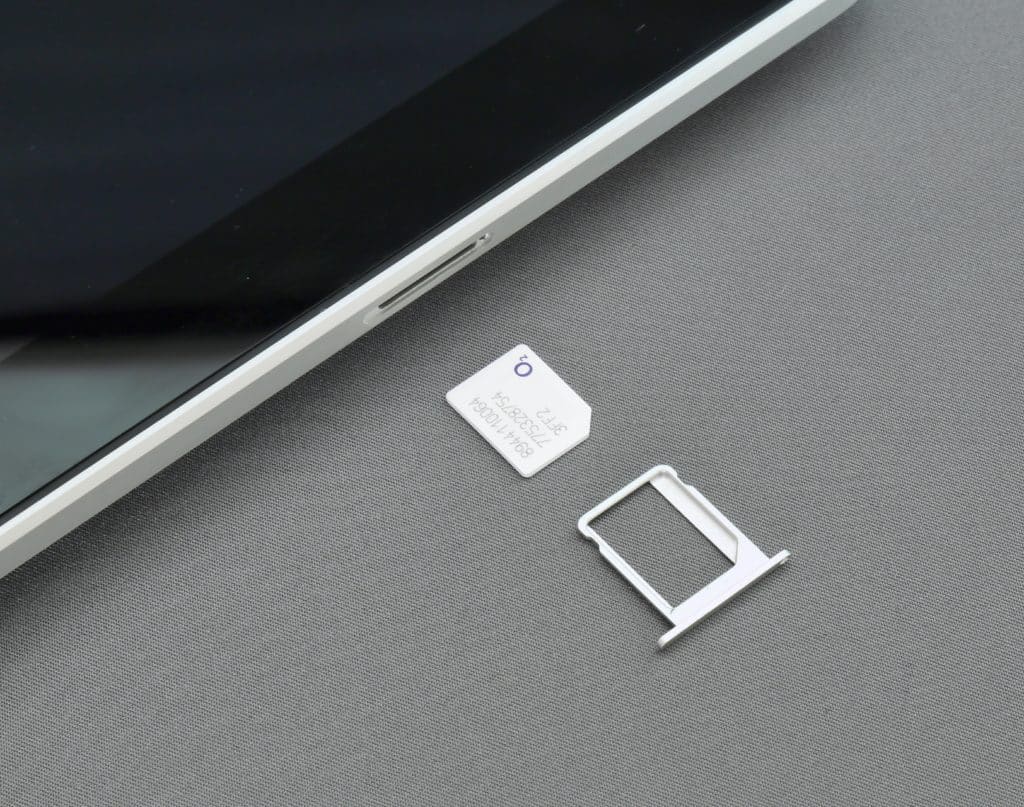
In the world of Japan’s real estate, things move pretty quickly. So it’s best to have a Japanese phone number so your agent can reach you at all times. But if you’re applying from outside of Japan then an international number should also be fine.
#4 — Visa/Residence Card/Student ID and Passport
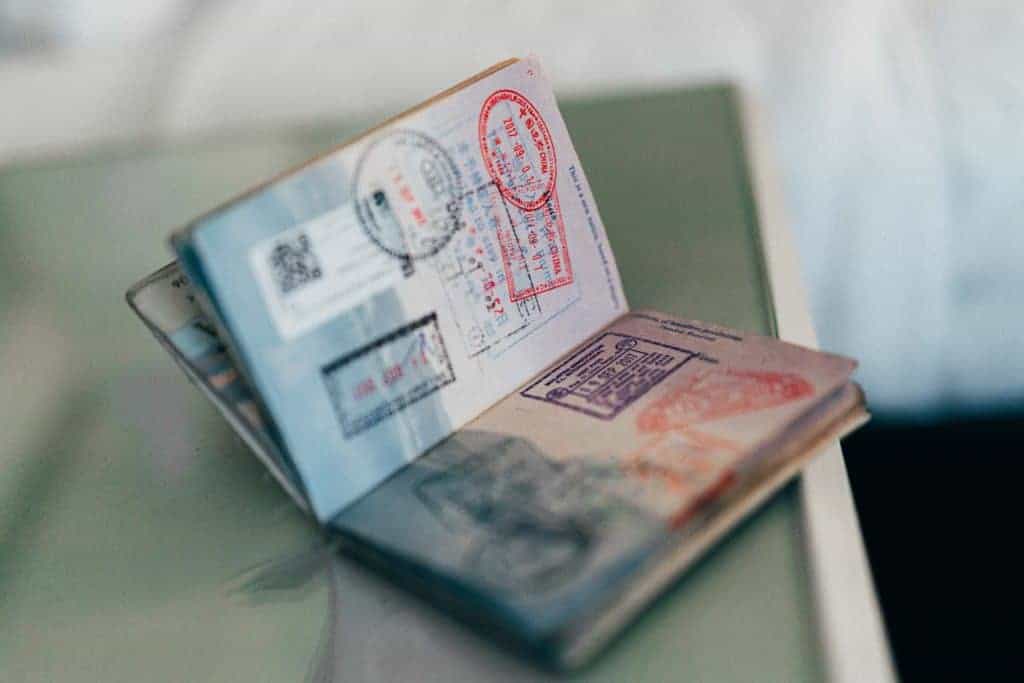
If you want to rent an apartment in Tokyo, you must provide two official ID proof – one is your passport and the second one could be your visa, residence card, or Student ID.
For short-term travel to Japan, you cannot sign a long-term contract to rent an apartment in Tokyo. If you’re on a short visit to Tokyo and want to rent a place in Tokyo to stay then you have other cheaper and easier options. More on that below!
#5 — Employer Letter
Or any papers that state the purpose of your stay in Japan. You probably used these papers for your visa application as well. It could be a letter of employment, invitation letter, etc.
#6 — Japanese Bank Account
Technically speaking, you won’t need a Japanese bank account immediately when you start looking for an apartment in Tokyo. But rather, you’ll eventually need a Japanese bank account to transfer the rent to your landlord later on. So it’s best to start this process as well. To pay initial costs, you can do so via an international bank account, credit card or some agents may even accept the amount in cash.
#7 — Bank Statement Or Recent Pay Slips Copy
Your rent will be set to around 30% of your monthly salary and not more. So in order to prove that you can pay this amount, consistently, you have to show your bank statement of 3 consecutive months or payslips. Or your bank book in case you’re unemployed.
#8 — Guarantor
A guarantor is someone who can vouch for your reliability. Basically, they’ll be held accountable in case you’re not able to pay the rent.
Here you have two options: If you have a local Japanese friend or family member who can vouch for you then you can list them as your guarantor, if not you’ll have to turn to a guarantor company (your agent will help you find one). But this will charge you (obviously).
The guarantor’s fee is usually one month’s rent and an annual renewal fee. Other than this, your company or university may also act as your guarantor for free (or for a small price).
Hiring a guarantor company is becoming more popular in Japan, at least amongst the locals here, since nobody wants to burden someone else with that responsibility.
#9 — Local Emergency Contact
You have to list a local emergency contact who the landlord will hold accountable for in case you leave without saying sayonara. This local emergency contact will then have to deal with all the problems you’ve left behind. You can see why no local Japanese will agree to do this for you unless you’re best friends or direct family.
But don’t worry your company may agree to be listed as your emergency contact since organizations in Japan look at their employees as their responsibility. However, some agents will also allow you to list a non-Japanese emergency contact as well.
#10 — Character Reference
Almost always your domestic emergency contact will also be your character reference. And if you’re a foreigner trying to rent an apartment in Tokyo then it’s best you have a Japanese as your character reference. A character reference basically vouches for your character – that you’ll be a well-behaved tenant.
Tokyo House Rent: Prices Breakdown
If you’re not sure which area in Tokyo you want to rent an apartment in, here’s a quick guide listing average rent prices of different neighborhoods in Tokyo. Before that let’s get familiar with some lingo:
LDK = Living, Dining, and Kitchen. The number that’s mentioned before LDK refers to the number of rooms. For example, 1LDK = 1 room, living, dining, and kitchen.
1K = 1 room + kitchen
1DK = 1 room + dining + kitchen
2LDK = 2 rooms + living + dining + kitchen
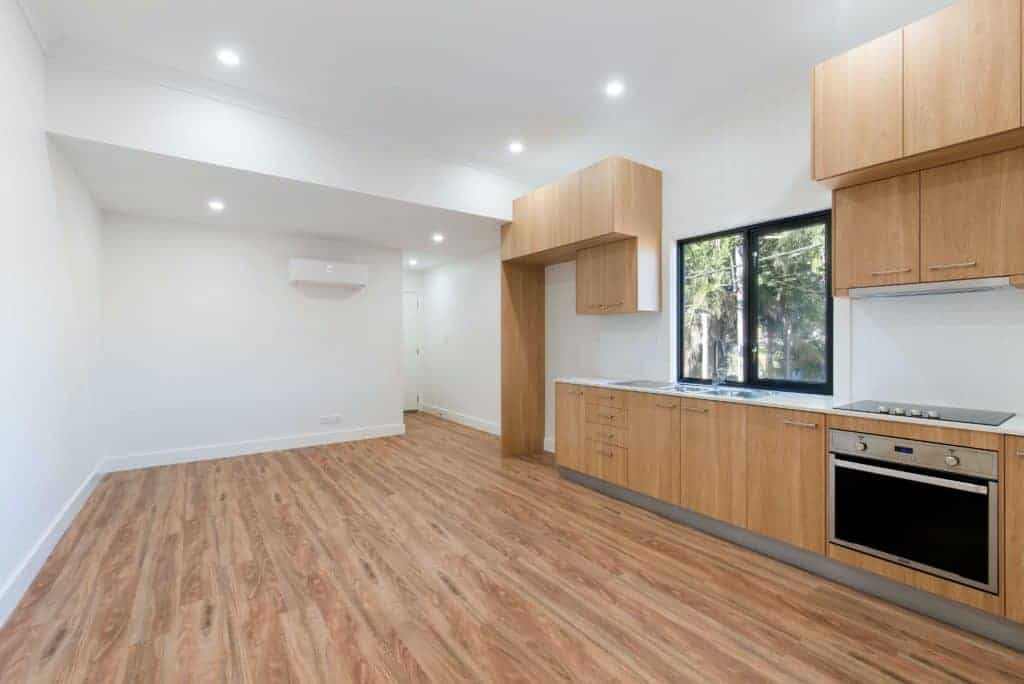
The size of an apartment in Japan is measured in terms of ‘jo’. This unit is based on how many tatami mats can fit the floor of your apartment. Ask your agent for the exact size.
Tokyo is one of the most expensive places to rent an apartment. Wards like Chiyoda, Shibuya, Minato, Chuo, and Shinjuku are the most expensive neighborhoods to rent an apartment since they’re at the center of the city.
| Ward | Average Cost Per month | Average Cost Per month | Average Cost Per month | Average Cost Per month | Average Cost Per month | Average Cost Per month |
| 1R | 1K | 2K | 2DK | 1DK | 1LDK | |
| Shinjuku | 97,300 | 105,500 | 97,700 | 145,700 | 142,000 | 235,800 |
| Chuo | 124,100 | 111,000 | 120,300 | 158,200 | 163,200 | 231,700 |
| Meguro | 105,400 | 111,600 | 108,600 | 141,700 | 155,400 | 209,000 |
| Minato | 132,300 | 117,500 | 149,400 | 150,000 | 177,200 | 293,400 |
| Shibuya | 117,000 | 119,100 | 114,300 | 156,600 | 146,700 | 226,200 |
| Chiyoda | 130,600 | 123,800 | 137,000 | 175,000 | 162,800 | 234,400 |
One room rent in Tokyo in the Shinjuku ward is 97,300 and in Minato is 132,300 – being the most expensive. 2 bedroom apartments in Tokyo rent with dining and kitchen in the same wards are 145,700 and 175,000, respectively.
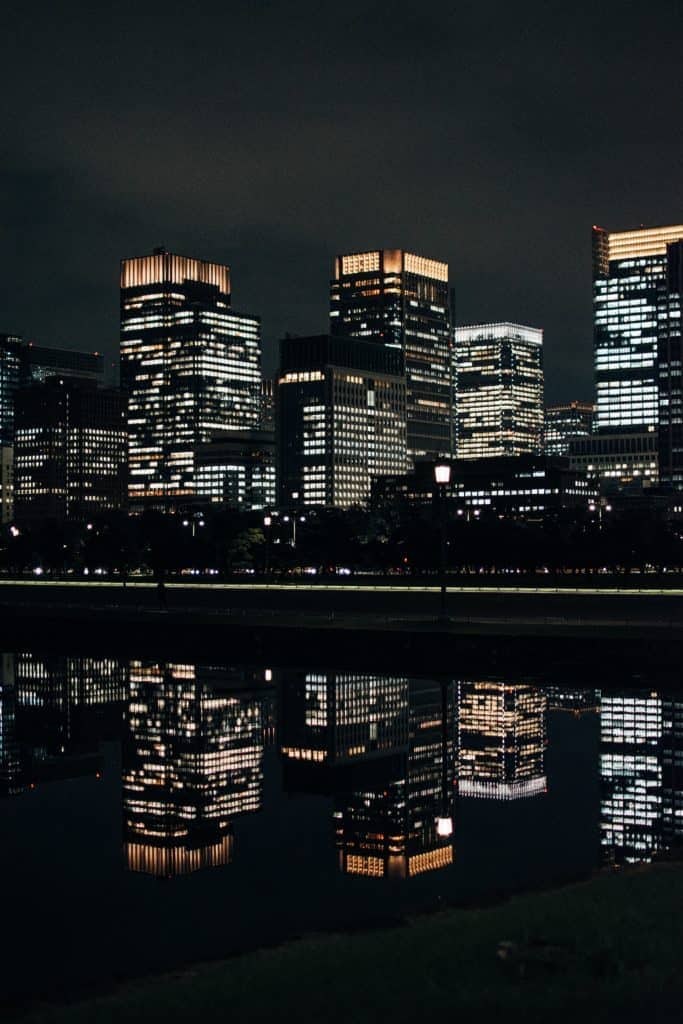
The further away you go from the center of Tokyo, you’ll find that the is lesser. For example, in Wards like Kita, Arakawa, and Suginami the average cost for 1R is about 70,000 – 80,000
| Ward | Avg Cost Per month | Avg Cost Per month | Avg Cost Per month | Avg Cost Per month | Avg Cost Per month | Avg Cost Per month |
| 1R | 1K | 2K | 2DK | 1DK | 1LDK | |
| Suginami | 69,900 | 81,500 | 100,200 | 113,100 | 87,000 | 132,700 |
| Kita | 74,900 | 82,000 | 83,600 | 110,600 | 117,900 | 157,800 |
| Arakawa | 71,900 | 83,700 | 81,100 | 100,200 | 102,800 | 126,100 |
| Ota | 75,500 | 84,200 | 88,600 | 117,200 | 101,800 | 138,400 |
| Setagaya | 80,100 | 86,900 | 99,000 | 137,700 | 127,000 | 163,500 |
Wards that are still further away, the most outer-laying wards of Tokyo, like Adachi, Katsushika, and Edogawa have the cheapest rent compared to all of Tokyo. The average rent for 1R in these wards is about 60,000 to 65,000.
| Ward | Avg Cost Per month | Avg Cost Per month | Avg Cost Per month | Avg Cost Per month | Avg Cost Per month | Avg Cost Per month |
| 1R | 1K | 2K | 2DK | 1DK | 1LDK | |
| Edogawa | 61,200 | 68,300 | 72,400 | 89,800 | 75,200 | 110,200 |
| Katsushika | 59,400 | 69,200 | 67,600 | 85,100 | 87,900 | 95,700 |
| Adachi | 63,600 | 70,500 | 65,600 | 91,500 | 77,100 | 106,500 |
How To Rent A House In Tokyo For A Month?
For short-term stay in Tokyo, it doesn’t make sense for you to sign a two-year contract. You have several options that are cheap and you’ll find that it is well within your budget for short-term stays. Also, these options don’t require you to pay key money, huge deposit, etc. Plus, you don’t need to worry about a guarantor either!
Sites like MetroResidences can help you find a serviced apartment. Or there’s the Urban Renaissance agency that will make your life so much easier without charging you all that extra fee.
You can even opt for share houses through Sakura house that charges no hidden fees and offers fully-furnished apartments.
#1 — Rent Serviced Apartments In Tokyo
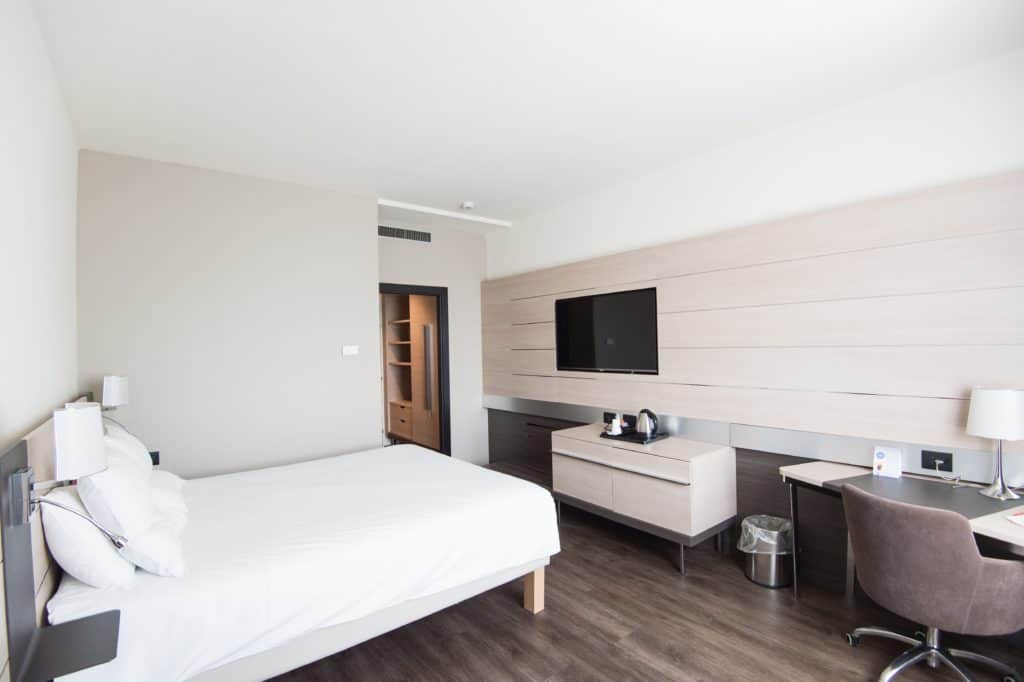
Renting a serviced apartment in Tokyo is the best option for a short-term stay in Tokyo. All you need is your passport, about a month’s deposit fee which will be returned in 15 days. There are no hidden fees and everything is included in your rent. And the contract can be set from 1-12 months depending on your requirement! Check out MetroResidences to find yourself a serviced apartment in Tokyo!
Rental Agencies in Tokyo and Other Areas in Japan
Urban Renaissance Agency: If you opt for UR housing, you’ll be happy to know that there are no key money or renewal fees charged. Also, you don’t need a guarantor. However, you still have to pay a deposit of about 1-3 months’ rent. But the main thing is that all those extra fees are absent.
Japan Home Search: Japan Home Search has bilingual staff that will ease your process of finding the perfect apartment in Japan for you. They have specialized knowledge about Tokyo, Nagoya, and Osaka. They are ready to provide you with all the information and assist you with security deposit recovery, commercial leasing solutions, housing insurance brokerage.
Able: Able is another great rental agency that will help you find houses for rent in Japan. It is great for students who are looking for an apartment near their schools/universities. It provides specialized information about almost every place around Japan. They’re also reliable and the most helpful in the lot.
#3 — Rent A Share House In Tokyo
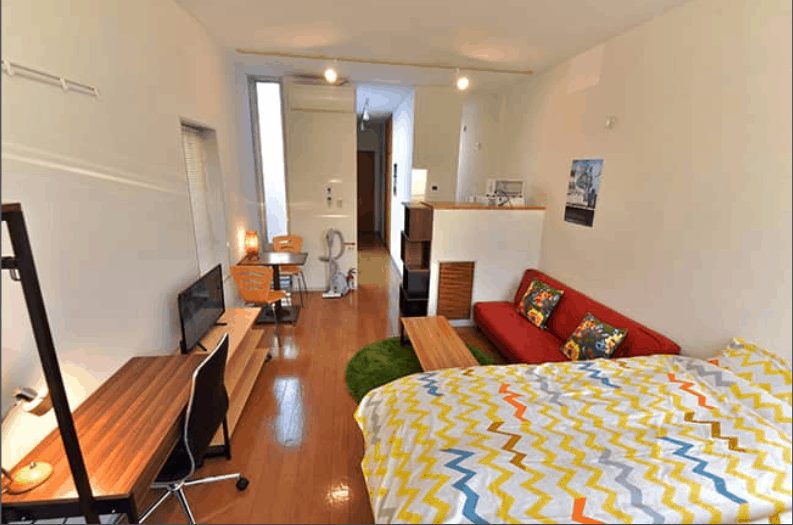
Share houses are definitely one of the most fun places to stay during your time in Tokyo. Think of it as a hostel. Sakura house is one of the most popular share houses in Tokyo, Japan. And it’s for foreigners only.
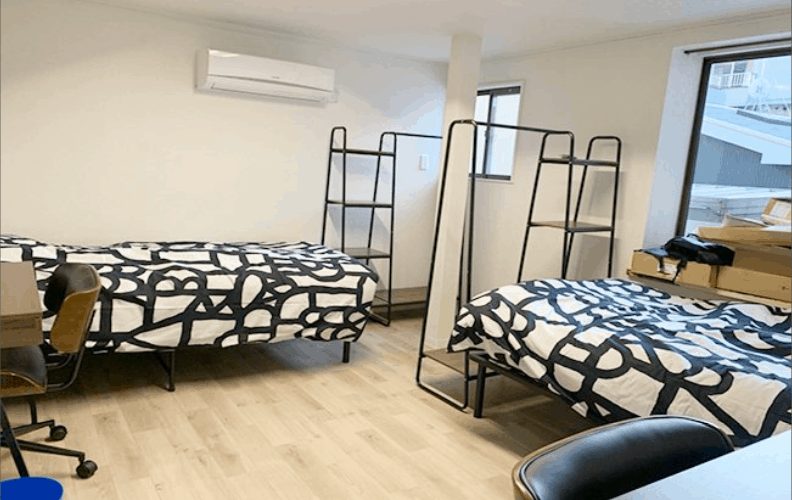
No key money, guarantor fee, or agent fee required. Like every other housing option, you do have to pay a deposit of about 20,000. Check it out here!
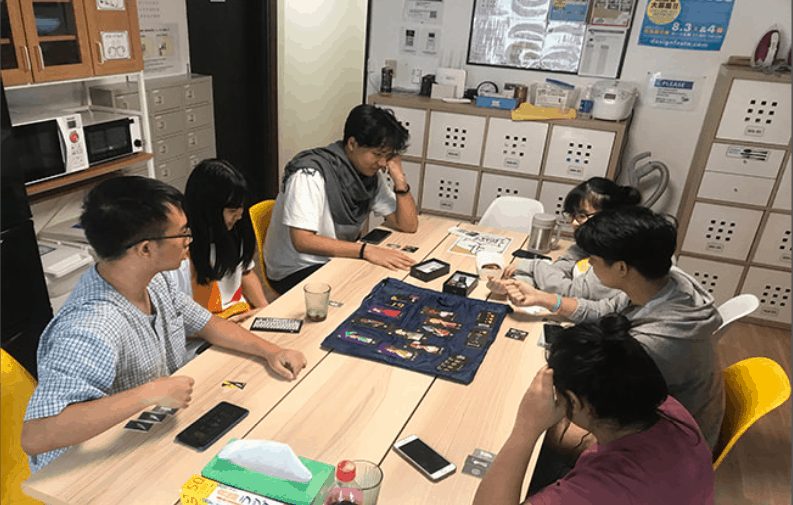
Tips When Renting an Apartment in Tokyo
- It’s not a guarantee that a rental agency will confirm your reservation. So make sure to pay the reservation fees which is a guarantee that you‘re going to move in.
- Check the distance from the nearest station. Usually, the apartment that’s farthest from the station has cheaper rates. But it doesn’t mean that you’d look for areas that are too far because you’ll have to travel at least twice a day to work and back. Areas with the most connectivities are also usually high priced.
- Look for areas like Saitama, Chiba, etc. as these places have better with their rents and also have much more space. Apartments in Tokyo are extremely small and expensive.
- Make sure all your documents are ready because rental apartments and agencies will collect a lot of information and it’s considered to be normal.
Understanding the Lease of the Apartment
- Rent: Rent is paid every month to the owner of the apartment and a late fee is cut if the rent is delayed. You’re expected to pay two months rent when the lease is initiated.
- Deposit: All the apartments require a security deposit when initiating the leave which can differ from property to property. Some can be as little as 2 months rent while other big properties can ask for upto 6-7 months rent. It’s usually refundable and a portion might be deducted for maintenance.
- Agent Fee/Commission: One month rent is paid as per industry standard to the broker or the agent who helped you get the apartment.
- Maintenance fee: A small amount of money is paid monthly for maintaining the building you’re going to live in.
- Key Money: Key money is mostly a non-refundable amount of about 1-2 months rent to initiate the lease. It’s usually called thank you money.
- Renewal fee: It’s the amount to be paid when the lease is over and you want to reinitiate the lease. It’s usually about a month’s rent.
How can a student rent an apartment in Tokyo?
If you’re a student who is moving to Tokyo then you might want to consider taking some documents as it’s important during the signing of lease. Please make sure to hire a guarantor to avoid hustle in finding flats. Here are the documents you’ll require:
- Passport and residence card: each person occupying the flat needs to submit a copy of their passport and residence card.
- Certificate of Eligibility or Employment letter: If you don’t have visa, you’ll need to attach a certificate of eligibility and also your employment letter. This can speed up the entire process.
- Student Id and Admission letter: Incase you’re a student, attach your student ID and admission offer letter that will help you speed the process.
- Proof of income documents: Submit a proof of your income with annual tax holding slip. Incase you’re a student, you need to attach the bank statement of your parents or whoever is paying the rent.
- Other things to keep handy: Japanese bank account, Japanese phone number, domestic emergency contact and approval of a guarantor company.
Taking Care of Your Rented Apartment in Tokyo
Now that you’ve gotten your apartment in Tokyo, it’s equally important to take care of it and ramp it up with all the necessities. Some basic things like carpets, fixtures, lights, etc. will need to be bought by you.
You’re not allowed to damage anything that belongs to the landlord. scratches, holes, stains, mildew damage etc. are non-negotiable and will either need to be restored or compensated. To avoid damages, it’s advisable to take proper care of the house.
Furniture: Always places the furniture some inches away from the wall keeping in mind the damage it can render. Don’t drag the furniture while moving in or moving out to avoid scratches and damages on the floor.

Floor: Be careful if you have carpeted or wooden floors. Avoid dropping food or other stained things on the floor. Contact the management company as soon as you notice any issue.
Hangings on the wall: To hang pictures or showpieces on the wall, don’t use nails as plotting holes are counted as damages which will lead to payment from the restoring deposit fees. Contact the agent and get yourself special hooks to hang your decorations.
Air Conditioners: Call the management company as soon as you notice that your A/C isn’t working or is leaking out or facing any sort of issue. Leaking can damage other things in the house.
Cheap Tokyo Apartments For Rent
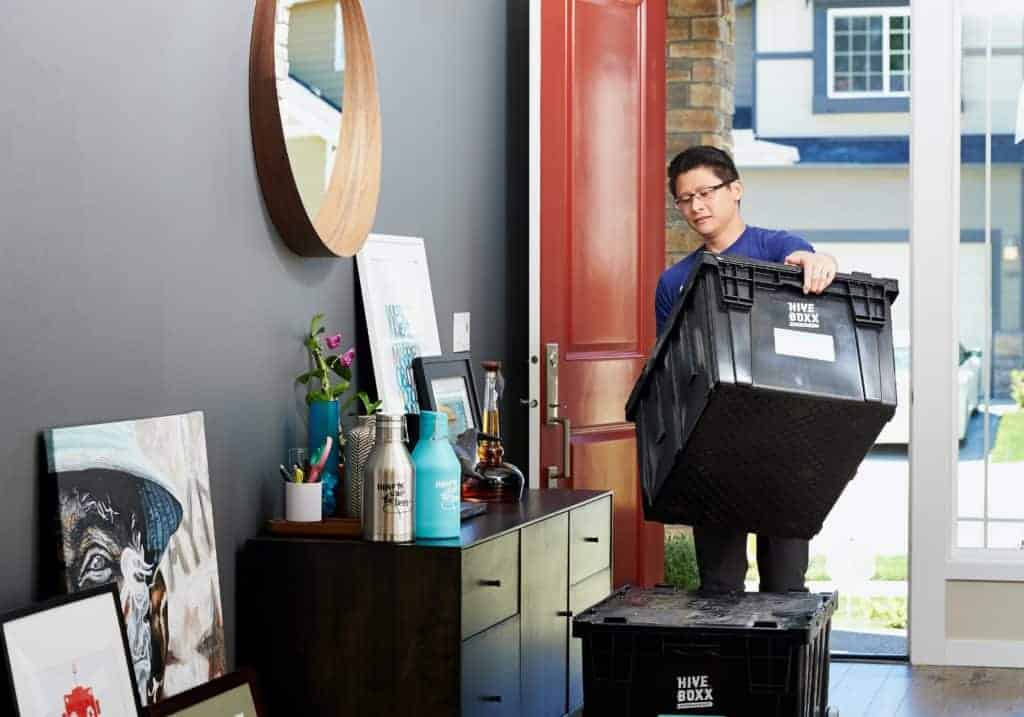
You can find cheaper apartments for rent in Tokyo towards the outer-lying wards of Tokyo and if you don’t mind a small commute to the train station, renting an apartment at least 10 minutes away from the station will prove to be cheaper even in the central wards of Tokyo.
Renting an Apartment in Tokyo: FAQs
Where can I find cheap apartments for rent in Tokyo?
You can find affordable rental apartments in Tokyo in areas outside central Tokyo like Nerima, Katsushika, or Edogawa. Look for “shared guesthouses” for budget-friendly options. Utilize websites like GaijinPot and YOLO HOME, and filter by price or “no guarantor” options. Remember, smaller apartment sizes are typical, and prioritize convenience versus cost based on your needs.
What are Jiko Bukken houses?
Jiko Bukken, meaning “accident property” in Japanese, refers to apartments or houses where an unnatural death has occurred, like suicide, murder, or fire. Due to cultural beliefs and superstition, these properties are stigmatized and significantly discounted.
How much is a small apartment in Tokyo?
- Studio (1R): Central Tokyo: ¥70,000-¥100,000 ($630-$910); Outside central Tokyo: ¥40,000-¥70,000 ($360-$630)
- One-bedroom (1K/1DK): Central Tokyo: ¥80,000-¥120,000 ($730-$1,100); Outside central Tokyo: ¥50,000-¥80,000 ($450-$730)
What is UR housing in Japan?
“UR” stands for Urban Renaissance Agency, a government-backed organization managing over 770,000 rental apartments across Japan. Think of them as a reliable, well-maintained option with some key perks:
- Reasonable prices: They generally adhere to market rates without the hidden fees common in private rentals.
- Flexibility: No guarantor required, shorter notice periods (15 days!), and deposits typically returned in full.
- Foreigner-friendly: They actively welcome foreign residents and often have English-speaking staff.
Can a foreigner rent an apartment in Japan?
Yes, foreigners can rent apartments in Japan, but it may require some extra steps compared to locals. Here’s the gist:
Generally:
- Allowed: Foreigners with valid visas and residence cards can rent.
- Challenges: Finding a guarantor (financial backer, usually a Japanese citizen) can be tough.
Solutions:
- Guarantor companies: Pay a fee for their guarantee service.
- No guarantor options: Some buildings or agencies cater to foreigners.
- UR housing: Government-backed apartments often waive guarantor requirements.
Also Read:





